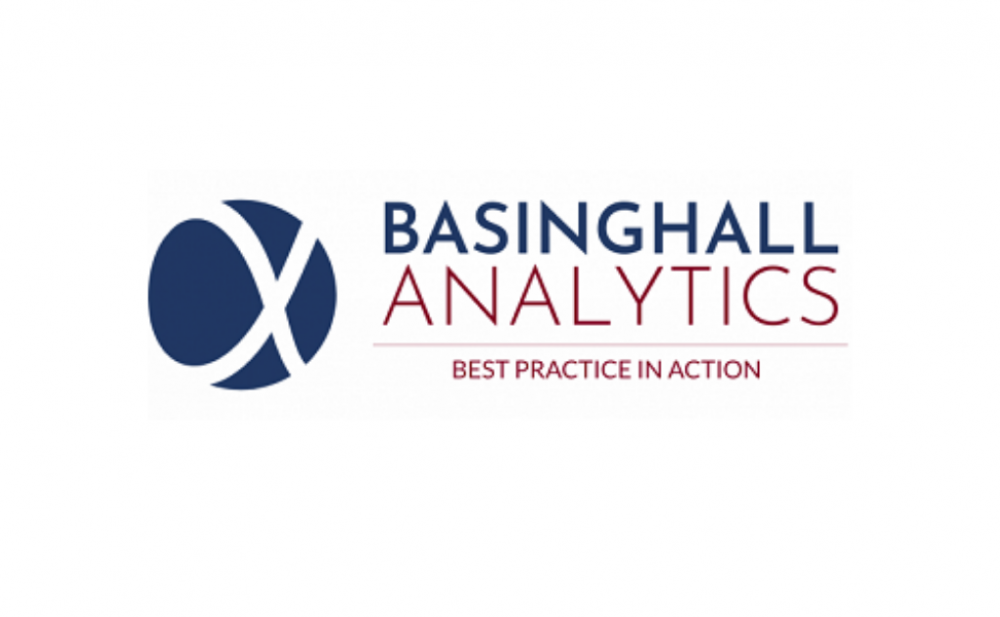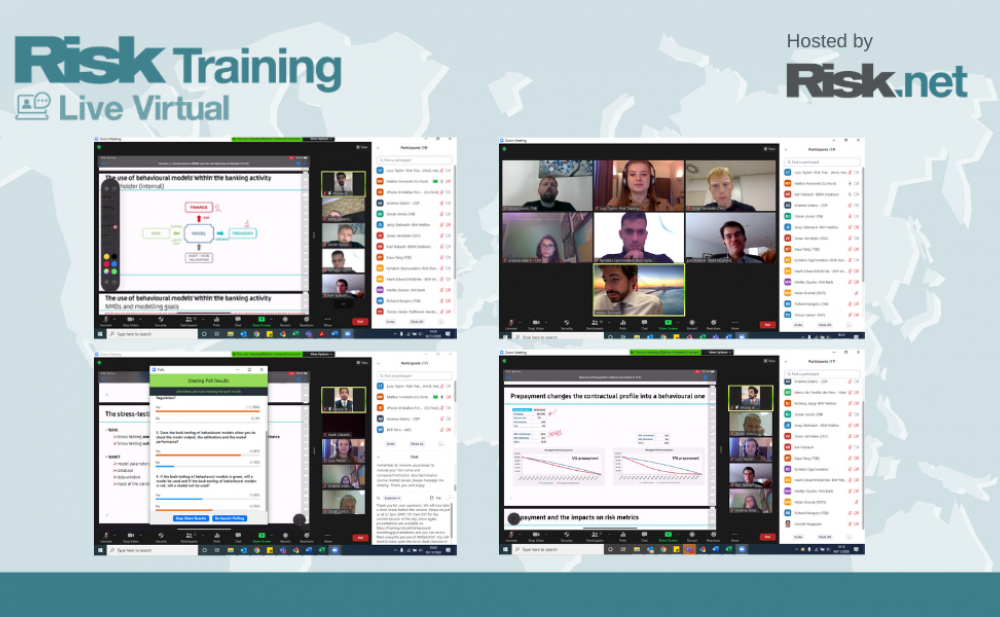Reverse Stress Testing
Reverse stress testing (RST) has increasing regulatory focus and is crucial for credible recovery, resolution, capital and winddown planning. This course explores how RST becomes a valuable tool to identify risk vulnerabilities both at the firm and business line level.

Develop your understanding of the importance of reverse stress testing (RST) and how to implement best practice within financial institutions through this interactive 4-day virtual course. Led by subject matter experts from Basinghall Analytics, session will discuss regulatory requirements of RST and its relation to risk governance and risk management. Deep dive into current market practices, core building blocks and identifying the types of scenarios of reverse stress testing. Supported by case study examples, this course will allow peer-peer discussion on what constitutes best practice features for reverse stress testing, as well as how to adapt existing models and calculation infrastructure for reverse stress testing. Sessions will explore the practical implementation of reverse stress testing models, how to appropriately present of results and application of reverse stress testing in the wider organisation.

What will you learn?
- Importance of reverse stress testing (RST) and its relation to risk governance and risk management
- Best practice approaches to RST: what does good look like?
- Understanding the crucial steps of the entire RST process
- Identifying key vulnerabilities and building scenarios
- Impact of reverse stress testing results on risk appetite calibration
- The application of RST within the organisation
- How to report and explain RST results to a sceptical audience

Who should attend
Relevant departments may include but are not limited to:
- Stress testing
- Scenario design
- Model risk management
- Risk management
- Recovery and resolution
- Finance

Sessions Include
- Overview of reverse stress testing
- Best practice approaches to reverse stress testing
- Core building blocks of reverse stress testing
- Slimming down the scenario space and achieving tractability
- Underlying models and calculations
- Practical implementation of reverse stress testing models
- Presentation and use of results
- Making sense of reverse stress testing in the organisation
Pricing options
We offer flexible pricing options for this course:
-
Early bird rates
-
Group rate
-
Enterprise rates
-
Visit the registration page for further information or contact us on risk.training@risk.net
Who are Basinghall Analytics
- Basinghall Analytics is a hybrid consulting and technology firm based out of London, United Kingdom. Its domain expertise includes risk, finance and treasury. Its mission is to enable clients to focus on business and risk decisions rather than process and infrastructure by delivering streamlined and integrated analytics and technology.
- The current top three focus areas are: model risk, scenario-driven processes like stress testing, and QuanTech. The latter is an emerging topic, which refers to taking an integrated approach to modelling, data engineering and software architecture.

Course Speakers

Nasir Ahmad
Managing partner
Basinghall Analytics
Nasir is managing partner of Basinghall Analytics and currently leads strategy of the firm, business and solution development.
He specialises in stress testing and reverse stress testing, model risk, recovery planning and resolution, capital and liquidity regulation and previous positions include: Banking book quant at Royal Bank of Canada, trading book quant at Toronto Dominion bank, Director at Arthur Andersen, Partner at EY, MD at BlackRock, Advisory Lead Partner at Parker Fitzgerald.
Nasir has worked on such notable projects as: Implementation of a stress testing orchestration platform, implementation of a new model risk methodology and tool, design of supervisory framework at UK regulator. He has a MSc in Theoretical Physics and PhD in Mathematics from the Swiss Federal Institute of Technology in Lausanne (EPFL).

John Brent
Partner
Basinghall Analytics
Current role: Leads stress testing and RRP solutions
Specialisms: Stress testing and reverse stress testing, market risk in credit products and equities, risk framework and system design
Notable projects: Stress testing at large UK bank, market risk integration at large EU bank, design of country risk framework, implementation of an agile top-down stress testing system
Previous positions include: Risk Specialist at the Financial Services Authority, Head of Credit Trading and Structured Credit at ABN Amro, Head of Equities Market Risk at RBS, Head of Stress Testing Policy and Model Governance at HSBC
Education: MA in Economics from the University of Cambridge.

Andrew Parr
Partner
Basinghall Analytics
Current role: Leads the retail banking solutions for the firm
Specialisms: Credit risk, model risk, IRB, IFRS 9, stress testing, operational modelling, regulation, project management of large programmes
Notable projects: IRB model development at four UK institutions, implementation of a new data platform for a UK building society, IFRS 9 and stress testing development and implementation
Previous positions include: Senior manager at Lloyds TSB, Head of Secured Credit Risk and Head of Unsecured Credit Risk at Nationwide, Head of Decision Analytics at Yorkshire Building Society, Chief Credit Officer at West Bromwich
Education: BSc in Mathematics from the University of Liverpool.

Horst Kausch
Partner
Basinghall Analytics
Horst is partner of Basinghall Analytics and currently leads offering on model lifecycle including model risk.
He specialises in risk modelling, model risk with expertise across the full lifecycle, risk architecture and previous positions include: VP Market Risk Analytics at Citi, Head of Counterparty Credit Risk Analytics at HSBC, MD at HSBC.
Horst has worked on notable projects including developing the counterparty credit risk model and obtaining IMM regulatory approval in multiple jurisdictions, establishing model monitoring across the full spectrum of risk models for regulatory capital frameworks (IRB, IMA, IMM) and impairments (IFRS9) and has a PhD in Theoretical Physics from the University of Cambridge.

Live Virtual training courses
Our live virtual training courses have been designed to engage and inspire you. Much more than a webinar, our approach includes:
-
Technical content compressed into 60-minute interactive sessions and spread out over two, three or four days
-
Facilitated collaboration including Q&A, interactive polling and group workshops
-
Live interaction with subject matter experts – get your questions answered in real time
-
Receive comprehensive course materials and supporting content from Risk.net to reinforce your learning
-
Stay connected with other learners and extend your network by joining our dedicated LinkedIn group for course participants
